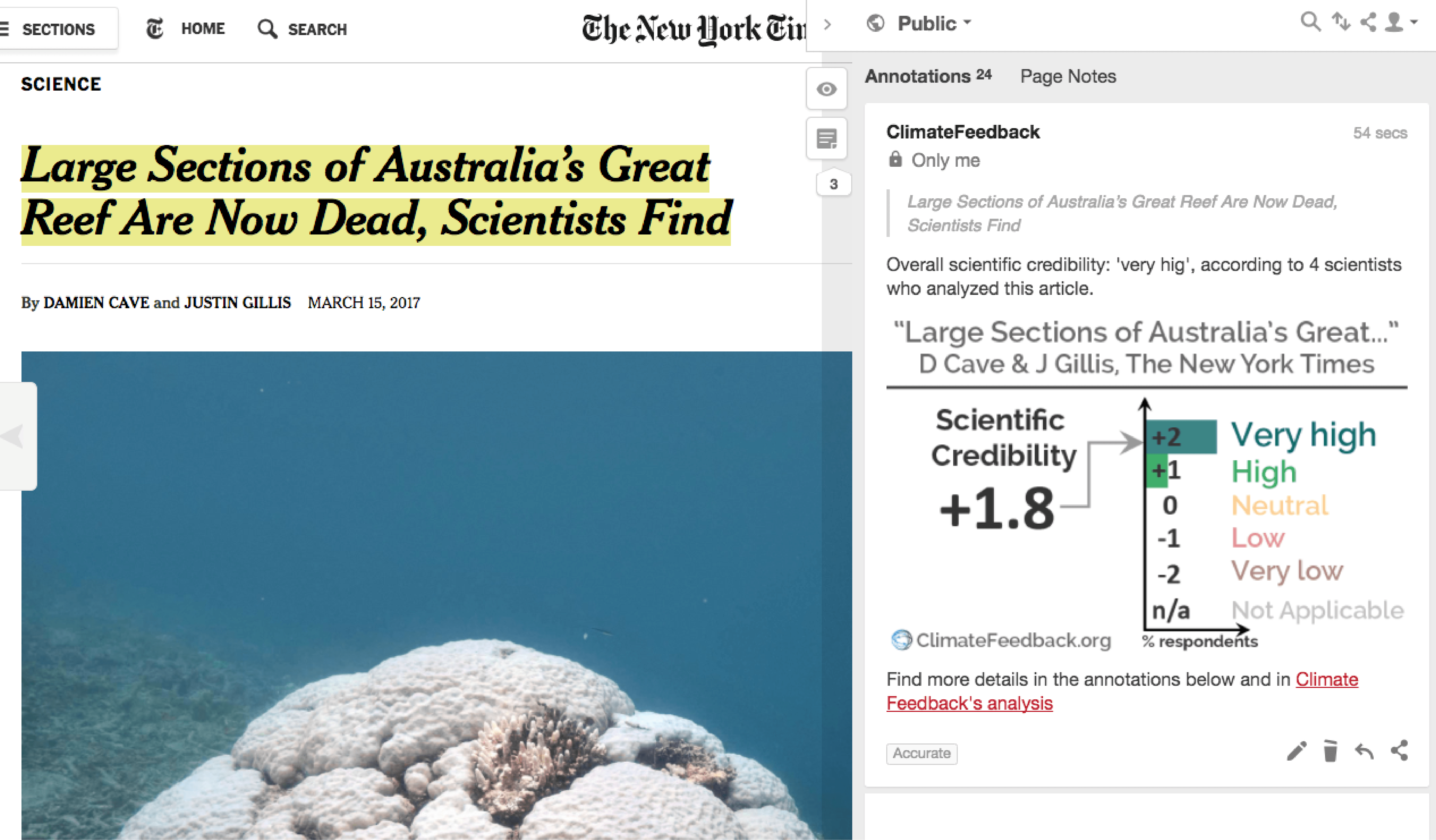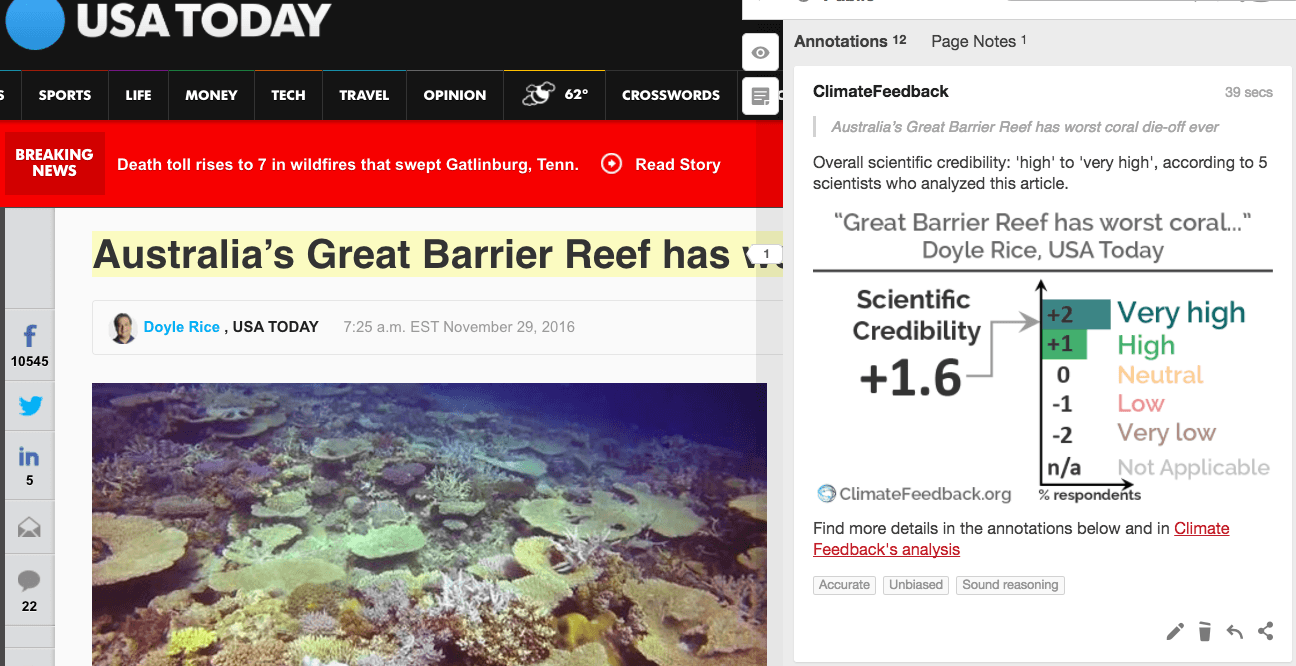.
John Bruno
Professor, The University of North Carolina at Chapel Hill
Expertise: Climate change impacts on ocean ecosystems
Details:
ARTICLES REVIEWED
The Australian’s coverage of Great Barrier Reef study creates perception that scientists are divided
in The Australian, by Graham Lloyd
— 22 Apr 2018
"The Australian chooses to present a mixed message on this story when the science is extremely clear. The title and quote from Prof. Kaempf do not represent the views of the broade..
Analysis of “Large Sections of Australia’s Great Reef Are Now Dead, Scientists Find”
in The New York Times, by Justin Gillis & Damien Cave
— 18 Mar 2017
While natural temperature fluctuations (due to El Niño, for example) have always occurred, they are now superimposed on a warmer background due to human-induced global warming. Th...
Analysis of “Australia’s Great Barrier Reef has worst coral die-off ever”
in USA Today, by Doyle Rice
— 30 Nov 2016
"This article is mostly accurate ... the frequency of massive bleaching events is increasing, will continue to increase in the near future, and these events do not need to occur an..
Analysis of “Great Barrier Reef may perish by 2030s…”
in Mashable, by Andrew Freedman
— 02 May 2016
This Mashable article reports on new preliminary research that finds the ongoing coral bleaching event in the Pacific is mainly due to human-caused global warming, and that if glob...
CLAIMS REVIEWED
The world’s coral reefs are severely threatened by climate change and other human impacts, as ABC story notes
CLAIM
90 per cent of the world's coral reefs will disappear in the next 35 years due to coral bleaching induced by global warming, pollution and over-development.
SOURCE: Greg Hassall & Rebecca Latham, ABC News
Published: 27 Feb 2017
VERDICT






